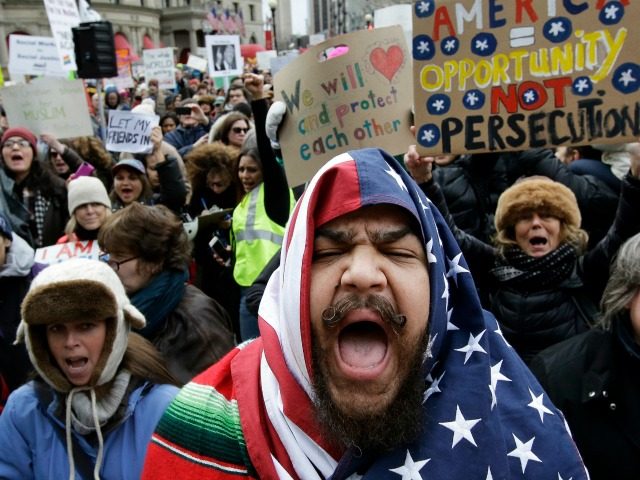Citizens of several foreign countries will be denied visas to enter the United States because their home governments have refused to share information about the identity of prospective visitors, officials say.
A report listing non-cooperative governments — likely including several Islamic governments such as Iran — was forwarded to the White House on Friday, pending a likely final decision and proclamation by the president this weekend. The report also listed a variety of optional visa restrictions which can be imposed on the citizens of the uncooperative of foreign governments.
Officials declined to name the uncooperative governments.
All foreign countries were asked to help U.S. officials confirm the real identity of people seeking to visit or immigrate into the United States, an official said. Nearly all countries cooperated, but some governments showed “total willful non-compliance” the official said during a Friday press conference.
“We need to know who is coming into our country,” said Miles Taylor, a legal advisor to the Secretary of the Department of Homeland Security. “Most countries in the world ended up meeting that baseline” requirement for identifying visitors, he said.
The anti-terror visa process was launched by the President Donald Trump’s March 6 Executive Order, titled “Protecting the Nation From Foreign Terrorist Entry Into the United States.” Trump confirmed his effort to strengthen security rules following a recent terror attack in London, by tweeting:
The formal agency process was partly designed to prevent interference by U.S. judges who are working with pro-immigration groups to block the new security rules. Those groups include numerous Islamic political organizations which are seeking to increase the number of Muslim living in the United States.
If the citizens of foreign countries want to complain about the pending travel curbs, they can press their government to provide the sought-after identification information, an agency official said. ”Their recourse is compliance,” he said.
The new identity verification rules are just part of the president’s emerging security provisions, which include more care in awarding visas and immigration approvals to foreign nationals. For example, Section 11 of the Executive Order directs agency officials to prepare and release a report which provides:
information regarding the number of foreign nationals in the United States who have been charged with terrorism-related offenses while in the United States; convicted of terrorism-related offenses while in the United States; or removed from the United States based on terrorism-related activity, affiliation with or provision of material support to a terrorism-related organization, or any other national-security-related reasons;
information regarding the number of foreign nationals in the United States who have been radicalized after entry into the United States and who have engaged in terrorism-related acts, or who have provided material support to terrorism-related organizations in countries that pose a threat to the United States;
information regarding the number and types of acts of gender-based violence against women, including so-called “honor killings,” in the United States by foreign nationals; and any other information relevant to public safety and security as determined by the Secretary of Homeland Security or the Attorney General, including information on the immigration status of foreign nationals charged with major offenses.
The report will be released in the “not too distant future,” an official said.

COMMENTS
Please let us know if you're having issues with commenting.